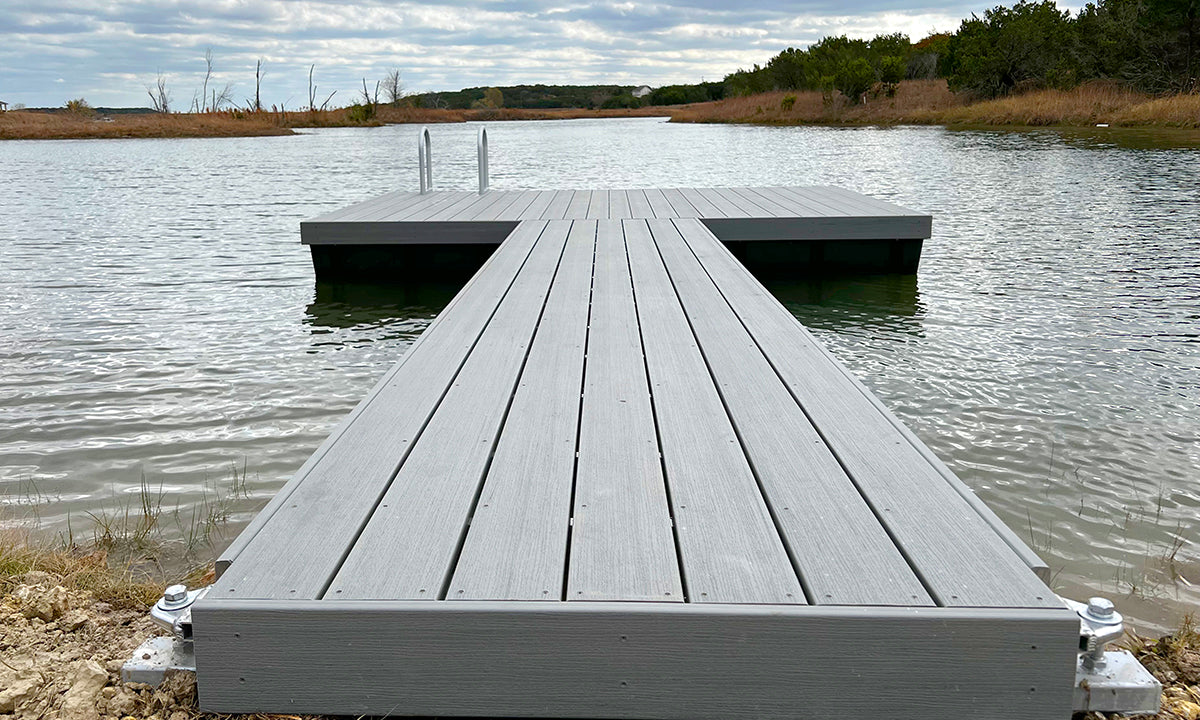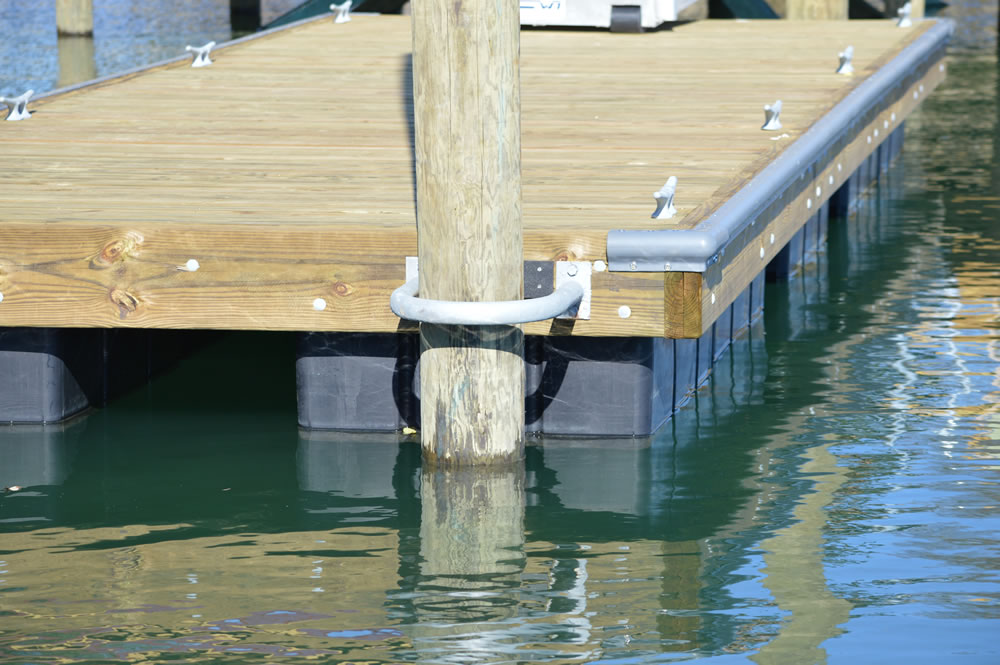Why Floating Docks Are the Perfect Option for Your Waterfront Requirements
Floating docks existing an engaging solution for waterside needs, especially due to their flexibility to varying water degrees and their durable, modular design. As we discover the complex advantages and applications of floating docks, it comes to be noticeable why they stand out in the world of beachfront facilities-- particularly when taking into consideration the lasting benefits they give for numerous stakeholders.
Secret Benefits of Floating Docks
The flexibility of floating docks offers countless advantages for beachfront applications, making them a significantly popular option among marina operators and home programmers. Among the primary advantages is their adaptability to varying water degrees, which allows them to continue to be useful in various settings, consisting of lakes, rivers, and coastal locations. Unlike traditional fixed docks, floating docks can climb and fall with the tides and seasonal modifications, guaranteeing regular accessibility.
Furthermore, floating docks are usually easier and cheaper to maintain and mount. Their modular layout helps with fast setting up, lowering labor prices and building and construction time. Furthermore, the materials used in floating dock building and construction are often resistant to deterioration, ensuring long life with minimal upkeep.
Security is an additional key advantage; the buoyant nature of these docks reduces the threat of mishaps during boarding and getting off, making them especially appealing for family-oriented centers. Their ecological effect is lower than that of set frameworks, as they do not disrupt marine ecological communities. Collectively, these benefits position floating docks as an exceptional option for an array of waterfront requirements, lining up with both operational performance and environmental factors to consider.
Perfect Applications for Different Activities
Flexibility is a hallmark of floating docks, making them suitable for a wide variety of tasks throughout various beachfront settings. These versatile structures can serve as perfect systems for leisure tasks such as boating, fishing, and swimming. Their buoyant nature permits simple accessibility to watercraft, enabling smooth embarkation and disembarkation, while likewise supplying a stable location for anglers to cast their lines.
In business setups, floating docks help with the loading and discharging of products, fitting both small and big vessels. They are especially beneficial in areas with ever-changing water degrees, making sure that operations continue to be continuous. Additionally, floating docks can be used for beachfront dining and amusement, offering a one-of-a-kind and beautiful experience for patrons.
Environmental applications are also noteworthy; floating docks can function as monitoring systems for wild animals enjoying or as docking terminals for research vessels taken part in ecological research studies. As marina expansions end up being extra common, these docks use a sensible remedy for enhancing capability without comprehensive land changes. Inevitably, the versatility of floating docks makes them a recommended selection for anyone seeking practical and reliable waterfront options.
Layout and Modification Choices
Floating docks not only cater to varied activities yet likewise supply a series of layout and personalization alternatives that boost their capability and visual charm. These flexible frameworks can be tailored to fit specific beachfront demands, whether for household, industrial, or entertainment purposes.
One trick element of customization is the choice of materials. Choices range from high-density polyethylene to aluminum, each supplying distinct benefits in terms of resilience and maintenance. Furthermore, the setup of the dock can be adapted to fit different water levels and environmental problems, ensuring stability and security.
Design functions can consist of incorporated seats, railings, and lighting, which not just enhance usability but also improve the visual aspect of the dock. Customized coatings and shades enable proprietors to match the dock with existing structures or individual preferences, producing a cohesive search for the beachfront.
Moreover, floating docks can be made with modular sections, making it possible for very easy growth or reconfiguration as demands transform. This flexibility is specifically useful for growing family members or advancing business. Overall, the extensive style and personalization alternatives offered make floating docks a highly versatile solution for any kind of waterfront setup.
Installment and Maintenance Factors To Consider
Typically, effective installation and maintenance of floating docks require mindful preparation and interest to information. Prior to starting installation, it is important to assess the certain website conditions, including water deepness, wave activity, and local policies. This preliminary analysis informs the option of products and design, making sure the dock will certainly withstand environmental anxieties.

Upkeep is equally vital to extend the life-span of the dock. Routine inspections need to be conducted to recognize wear and tear, specifically on flotation tools, ports, and outdoor decking. Cleaning the dock occasionally helps stop the buildup of algae and debris, which can endanger surface stability and visual appeals.
Furthermore, seasonal preparations, such as eliminating devices and securing the dock during extreme climate, can avoid damage. By prioritizing correct installation and routine maintenance, proprietors can ensure their floating dock stays a practical and trusted waterfront remedy for many years ahead.

Environmental Impact and Sustainability
The ecological effect of floating docks is a vital consideration for waterside projects, as these frameworks communicate directly with marine ecological communities. floating docks. Unlike this post typical fixed docks, floating docks lessen disruption to the substratum, allowing for all-natural debris movement and lowering erosion. Their style allows for water circulation under, promoting healthy and balanced marine atmospheres and sustaining neighborhood wildlife
Numerous floating docks are constructed from sustainable products, such as green composites and recycled plastics, which decrease the carbon impact linked with manufacturing. Moreover, modern-day styles include attributes that enhance environmental sustainability, such as permeable surfaces that assist in water purification and minimize pollution.
Floating docks likewise provide an excellent system for habitat remediation by sustaining the development of aquatic plants my link and offering sanctuary for fish and various other aquatic microorganisms. By including attributes like fish habitats and submerged plantings, floating docks can boost biodiversity in the location.
On top of that, these frameworks can be developed to fit solar panels, offering renewable resource alternatives that better minimize their environmental impact (floating dock builder). In general, floating docks represent a sustainable service that balances human use watersides with the preservation of vital communities
Conclusion
In verdict, floating docks existing a extremely versatile and sustainable option for diverse beachfront requirements. Their modular layout, combined with the use of sturdy, corrosion-resistant materials, ensures long life and ease of maintenance. The adaptability of floating docks fits various applications, varying from recreational tasks to commercial procedures while minimizing ecological impact. Eventually, the personalized functions and capability for development additional solidify floating docks as an optimal selection for any beachfront project.
Floating docks existing an engaging remedy for waterside demands, particularly due to their adaptability to varying water degrees and their durable, modular layout. Unlike typical set docks, floating docks can rise and fall with the trends and seasonal adjustments, guaranteeing constant availability.
Jointly, these benefits placement floating docks as a remarkable remedy for an array of beachfront demands, straightening with both operational efficiency and ecological considerations.
In general, the comprehensive design and personalization options available make floating docks moved here an extremely adaptable service for any waterfront setup.
Unlike typical set docks, floating docks minimize disruption to the substratum, enabling for natural sediment activity and minimizing erosion.